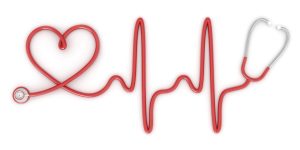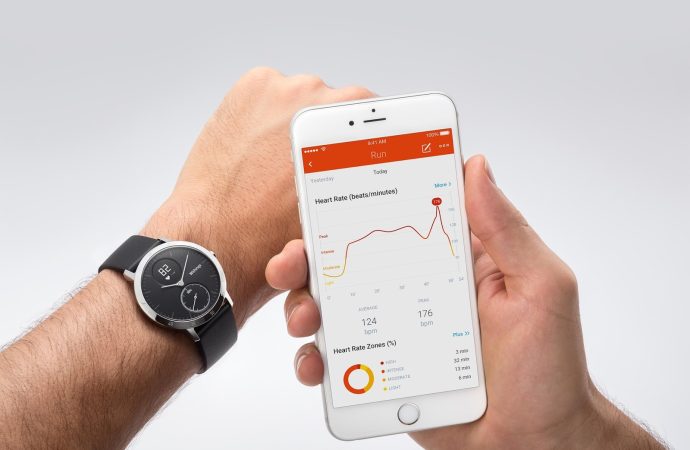Understanding High Heart Rate When it comes to our health, understanding the nuances of our body’s signals is crucial. One such signal that often raises concern is a high heart rate, medically known as tachycardia Fast Beats. But what exactly constitutes a high heart rate, and more importantly, what should one do about it? Let’s
Understanding High Heart Rate
When it comes to our health, understanding the nuances of our body’s signals is crucial. One such signal that often raises concern is a high heart rate, medically known as tachycardia Fast Beats. But what exactly constitutes a high heart rate, and more importantly, what should one do about it? Let’s delve into the intricacies of this physiological phenomenon.
What is Considered a High Heart Rate?
The heart rate, measured in beats per minute (bpm), varies from person to person and can be influenced by various factors such as age, fitness level, and overall health. A resting heart rate typically falls within the range of 60 to 100 bpm for adults. Anything consistently above this range might be considered a high heart rate.

Image by: yendex.com
Causes of High Heart Rate
Several factors can contribute to an elevated heart rate:
1. Physical Activity:
Engaging in strenuous physical activities such as running, cycling, or swimming can naturally elevate the heart rate as the body demands increased oxygen supply to muscles.
2. Stress and Anxiety:
Emotional stress or anxiety triggers the release of stress hormones like adrenaline, which can cause the heart to beat faster.
3. Fever or Illness:
During fever or illness, the body’s metabolic rate increases, leading to a rise in heart rate as it tries to cope with the infection.
4. Dehydration:
Inadequate fluid intake can result in dehydration, causing the heart to work harder to maintain blood pressure and circulation.
5. Medications or Substances:
Certain medications, stimulants, or substances like caffeine and nicotine can stimulate the heart, causing it to beat faster than usual. Fast Beats

Image by: yendex.com
Symptoms of High Heart Rate
Recognizing the symptoms associated with a high heart rate is essential for prompt intervention:
- Palpitations: Sensation of rapid, fluttering, or pounding Fast Beats.
- Shortness of Breath: Difficulty breathing or catching one’s breath.
- Dizziness or Lightheadedness: Feeling faint or dizzy.
- Chest Discomfort: Tightness, pressure, or pain in the chest. Explore More About (Vanish Kidney Stones Naturally)
What to Do When Experiencing High Heart Rate?
If you notice persistently elevated heart rate accompanied by concerning symptoms, it’s crucial to take appropriate steps:
1. Monitor Your Heart Rate:
Utilize a heart rate monitor or smartphone app to track your heart rate regularly, especially during physical activity or times of stress.
2. Stay Hydrated:
Ensure adequate fluid intake throughout the day to prevent dehydration, a common cause of high heart rate.
3. Practice Relaxation Techniques:
Incorporate relaxation techniques such as deep breathing, meditation, or yoga to manage stress and anxiety effectively.
4. Seek Medical Attention:
If you experience severe or persistent symptoms of high heart rate, consult a healthcare professional for a thorough evaluation and appropriate treatment.
Causes of High Heart Rate
| Causes | Description |
|---|---|
| Physical Activity | Engaging in strenuous exercises such as running, cycling, or swimming. |
| Stress and Anxiety | Emotional stress triggers the release of stress hormones, causing the heart to beat faster. |
| Fever or Illness | During fever or illness, the body’s metabolic rate increases, leading to an elevated heart rate. |
| Dehydration | Inadequate fluid intake can result in dehydration, compelling the heart to work harder to maintain circulation. |
| Medications or Substances | Certain medications, stimulants, or substances like caffeine and nicotine can stimulate the heart, raising the heart rate. |
Conclusion
Understanding high heart rate and its potential causes is paramount for maintaining optimal cardiovascular health. By identifying contributing factors and implementing appropriate lifestyle modifications, individuals can effectively manage and mitigate episodes of elevated heart rate, promoting overall well-being and longevity.
In conclusion, prioritizing heart health through regular monitoring, healthy lifestyle choices, and timely medical intervention can empower individuals to take control of their cardiovascular health and live life to the fullest.
















